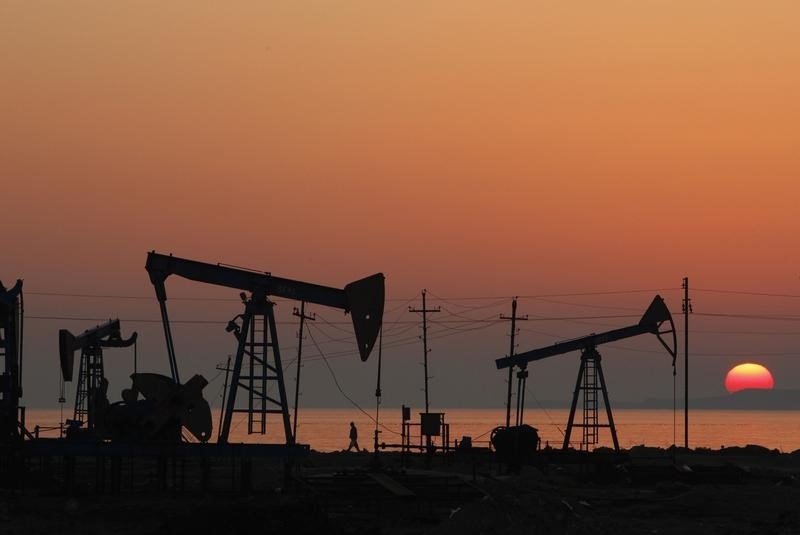Intel stock extends gains after report of possible U.S. government stake
Investing.com--Oil prices steadied Friday, but were still on track for weekly losses, as renewed oversupply concerns that OPEC+ may agree to another increase in production levels.
At 07:40 ET (11:40 GMT), Brent Oil Futures rose 0.2% to $64.56 per barrel, and West Texas Intermediate (WTI) crude futures climbed 0.2% to $61.30 per barrel.
Both contracts were on track to decline nearly 2% for the week.
OPEC+ reportedly weighs production hike again
The Organization of Petroleum Exporting Countries and allies, collectively known as OPEC+, are weighing the possibility of another production boost at their upcoming meeting on June 1, Bloomberg News reported on Thursday.
According to delegates cited in the report, one option under consideration is a supply increase of 411,000 barrels per day in July, though no final decision has been made.
"This would cement the shift in policy from the group -- moving from defending prices to defending market share," ING analysts said in a note.
OPEC+ has been in the process of unwinding output cuts, with additions to the market in May and June.
The Dutch bank assumes OPEC+ will go ahead with a 411k b/d supply increase for July.
"Therefore, our price forecasts will remain unchanged if an increase of this size is confirmed at the beginning of next month. We currently forecast Brent to average US$59/bbl in the fourth quarter. The front-month ICE Brent timespread has also come under pressure, falling from a backwardation of US$0.74/bbl at the start of the week to around US$0.50/bbl."
Oil prices were already under pressure after the Energy Information Administration (EIA) reported that U.S. crude oil inventories unexpectedly increased 1.3 million barrels for the week ending May 16, further underscoring oversupply worries.
Earlier in this week, the American Petroleum Institute (API) also reported an unexpected build of 2.5 million barrels in U.S. crude inventories.
U.S.-Iran nuclear talks loom
Investors cautiously awaited updates on the fifth round of nuclear negotiations between Iran and the United States later in the session, in Rome, with Oman continuing its role as mediator.
A central point of contention remains Iran’s uranium enrichment activities. While the U.S. demands a complete halt to enrichment, Iran insists on its right to enrich uranium for peaceful purposes.
If the negotiations make progress or lead to an easing of U.S. sanctions, Iran could increase its crude oil exports, further underpinning a supply surplus scenario.
Ayushman Ojha contributed to this article.
